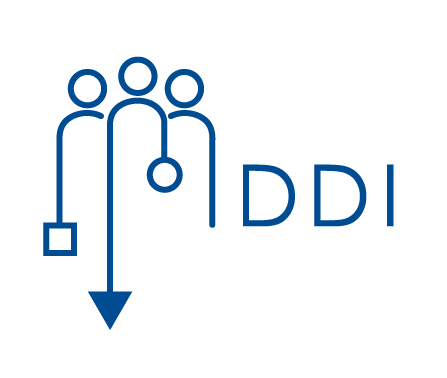Team

Wissenschaftlicher Mitarbeiter
Felix Ziemann , M.Sc.
- Raum:
- S-A 224
- Telefon:
- +49 201 18-37246
- Fax:
- +49 201 18-36897
- E-Mail:
- felix.ziemann (at) uni-due.de
- Sprechstunde:
- n.V.
- Homepage:
- https://udue.de/fz
- Adresse:
- Universität Duisburg-Essen, Campus Essen
Fakultät für Informatik
Didaktik der Informatik
Schützenbahn 70
45127 Essen
Lebenslauf:
Beruflicher Werdegang
- seit 03/24: Wissenschaftlicher Mitarbeiter an der Universität Duisburg-Essen am Lehrstuhl für Didaktik der Informatik unter der Leitung von Prof. Dr. Torsten Brinda
- 03/22 - 02/24: Wissenschaftliche Hilfskraft in der Schülerakademie des Hasso-Plattner-Instituts der Universität Potsdam
- 12/21 - 12/23: Wissenschaftliche Hilfskraft im Zentrum für Qualitätsentwicklung in Lehre und Studium an der Universität Potsdam
Ausbildung
- 10/21 - 03/24: Master of Science in Computational Science an der Universität Potsdam
- 10/18 - 9/21: Bachelor of Arts in den Fächern Informatik, Sozialwissenschaften und Bildungswissenschaften an der Universität Duisburg-Essen
- 2010 - 2018: Theodor-Körner-Schule in Bochum/NRW
Publikationen:
- Kramer, Matthias; Ziemann, Felix: KI sehr gern, Konsolen bitte nicht - Eine Untersuchung zu Fortbildungsbedarfen von Informatiklehrkräften. In: Grillenberger, M. et al. (Hrsg.): 21. GI-Fachtagung Informatik und Schule (INFOS) (im Erscheinen). Gesellschaft für Informatik e.V., Bonn, 2025. DetailsBIB Download
- Ziemann, Felix; Brinda, Torsten: From Curricula to Classrooms: Primary School Teachers’ First Experiences and Challenges in Teaching CS. In: Staub, J. et al. (Hrsg.): Local Proceedings of the 18th International Conference on Informatics in Schools: Situation, Evolution, and Perspectives (Im Erscheinen). Trier, 2025. DetailsBIB Download
- Strobl, Jan; Batur, Fatma; Ziemann, Felix; Brinda, Torsten: Discipline-Specific Language Proficiency in CS Teacher Education. In: Michaeli, Tilman; Sentance, Sue; Bergner, Nadine (Hrsg.): Proceedings of the 19th WiPSCE Conference on Primary and Secondary Computing Education Research. Association for Computing Machinery, New York, NY, USA, 2024. doi:10.1145/3677619.3678122KurzfassungDetailsBIB Download
The importance of discipline-specific language learning in all subjects is now widely recognized. The introduction of computer science as a compulsory subject for all students of all types of schools in many places makes it even more important to take the linguistic heterogeneity of the student population into account. This poster abstract aims to present the development and implementation of a course in our master’s degree program designed to equip future CS teachers with language-sensitive teaching strategies.
- Ziemann, Felix; Reuß, Florian: Systematic Debugging of Logical Errors in Source Code. In: Michaeli, Tilman; Sentance, Sue; Bergner, Nadine (Hrsg.): Proceedings of the 19th WiPSCE Conference on Primary and Secondary Computing Education Research. Association for Computing Machinery, New York, NY, USA, 2024. doi:10.1145/3677619.3678105KurzfassungDetailsBIB Download
In this paper we describe initial findings from the development of a web-based learning environment aimed at teaching a systematic approach to debugging, meaning it supports learners’ identification and correction of errors in source code. During the use of the tool, learners iteratively narrow down the error space and subsequently explicate their experience knowledge in their personal logbook. The instructional design of the tool follows the Cognitive Apprenticeship approach. In order to explore learners’ behaviour and their first experiences with the tool, the think aloud protocol was applied with six undergraduate computer science students. The findings show a positive response to the systematization of the debugging process and indicate specific design actions that could be taken into account in order to further improve the tool.
- Ziemann, Felix: Entwicklung und Evaluation einer prototypischen Lernumgebung für das systematische Debugging logischer Fehler in Quellcode. Universitätsverlag Potsdam, Potsdam 2024. doi:10.25932/publishup-63273KurzfassungDetailsBIB Download
Wo programmiert wird, da passieren Fehler. Um das Debugging, also die Suche sowie die Behebung von Fehlern in Quellcode, stärker explizit zu adressieren, verfolgt die vorliegende Arbeit das Ziel, entlang einer prototypischen Lernumgebung sowohl ein systematisches Vorgehen während des Debuggings zu vermitteln als auch Gestaltungsfolgerungen für ebensolche Lernumgebungen zu identifizieren. Dazu wird die folgende Forschungsfrage gestellt: Wie verhalten sich die Lernenden während des kurzzeitigen Gebrauchs einer Lernumgebung nach dem Cognitive Apprenticeship-Ansatz mit dem Ziel der expliziten Vermittlung eines systematischen Debuggingvorgehens und welche Eindrücke entstehen während der Bearbeitung?
Zur Beantwortung dieser Forschungsfrage wurde orientierend an literaturbasierten Implikationen für die Vermittlung von Debugging und (medien-)didaktischen Gestaltungsaspekten eine prototypische Lernumgebung entwickelt und im Rahmen einer qualitativen Nutzerstudie mit Bachelorstudierenden informatischer Studiengänge erprobt. Hierbei wurden zum einen anwendungsbezogene Verbesserungspotenziale identifiziert. Zum anderen zeigte sich insbesondere gegenüber der Systematisierung des Debuggingprozesses innerhalb der Aufgabenbearbeitung eine positive Resonanz. Eine Untersuchung, inwieweit sich die Nutzung der Lernumgebung längerfristig auf das Verhalten von Personen und ihre Vorgehensweisen während des Debuggings auswirkt, könnte Gegenstand kommender Arbeiten sein.
- Ziemann, Felix; Nguyen, Duy; Blum, Franziska; Lucke, Ulrike: Personalized Recommendations for Individual Learning Pathways: Supporting Ukrainian Refugee Students in Continuing their University Education. In: Desnos, J. -F.; López Nores, M. (Hrsg.): Proceedings of European University Information Systems Congress 2023. EasyChair (EPiC Series in Computing, 95), 2023, S. 170-180. doi:10.29007/98hpKurzfassungDetailsBIB Download
Among the refugees of the war in Ukraine, there is an above-average number of academics, who should be able to continue their university studies abroad. Here, digital media can lower access barriers, but lack of knowledge of the language or the education system in the host country hampers participation. In addition, needs vary from person to person, which makes counseling processes complex. This article presents a cross-institutional recommendation system that proposes personalized recommendations for suitable learning paths and makes appropriate educational opportunities accessible. We present the system's structure and mode of operation, based on the currently developed national infrastructure for digital education in Germany, as well as initial findings from its evaluation based on the use case of Ukrainian refugee students.
Lehrveranstaltungen:
- Heterogenität und Inklusion im Informatikunterricht
- Schülerlabor Informatik
- Berufsfeldpraktikum Informatik
Mitgliedschaften:
Gesellschaft für Informatik (GI)
URL: http://www.gi.de/
- GI-Fachgruppe "Didaktik der Informatik"
- URL: http://fg-ddi.gi.de/
- GI-Fachgruppe "Informatische Bildung in NRW"
- GI-Fachgruppe "Informatik-Bildung in Berlin und Brandenburg"

